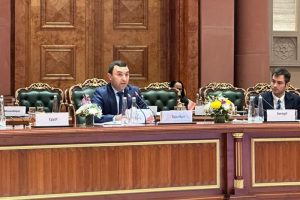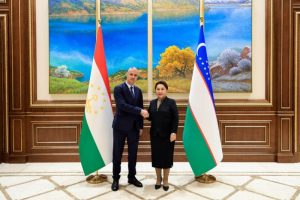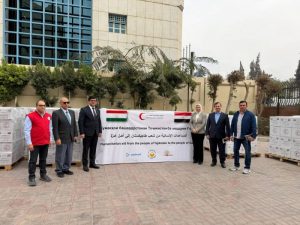Improving climate resilience among pastoralists
Dushanbe, 13.02.2016. (NIAT “Khovar”). — Last week the Republic of Tajikistan and the United Nations International Fund for Agricultural Development (IFAD) signed an agreement to finance 2nd phase of already successful Livestock and Pasture Development Project (LPDPII), an initiative that aims to reduce the vulnerability of pastoral communities to climate change threats. The agreement was signed in Rome by Abdusalom Qurboniyon, Minister for Finance of the Republic of Tajikistan and by Kanayo F. Nwanze, President of IFAD. The project represents an important step forward in the collaboration between Tajikistan and IFAD.
The total cost of this phase is estimated at US $24.2 million. The funding is comprised of an $8.7 million IFAD loan, an $8.7 million IFAD grant, and an additional $5 million grant from IFAD’s Adaptation for Smallholder Agriculture Programme (ASAP). The government of Tajikistan will contribute an estimated $0.44 million while beneficiaries will provide $0.85 million.
LPDPII aims to reach an additional 38000 rural households in five districts of the Khatlon region. It will mainly target smallholder livestock farmers, private veterinary service providers, woman-headed households as well as women belonging to poor households. Specifically, the project will focus on developing institutions for effective management of pasture resources by local communities, and enhancing productivity of livestock by improving animal health and nutrition. Through a grant provided by IFAD’s climate fund, one of the tools that will enable livestock farmers to maximize the use of pastures is a monitoring and evaluation system of pasture productivity.
Preparation and implementation support of both phases has been provided by the Investment Centre of the UN Food and Agriculture Organization.











 Tajikistan Promotes Digital Transformation Agenda at AI Impact Summit
Tajikistan Promotes Digital Transformation Agenda at AI Impact Summit Tajikistan Expands AI Cooperation with Google DeepMind
Tajikistan Expands AI Cooperation with Google DeepMind Tajik Customs, Japanese Firm Sign Deal on Cargo Scanning Upgrade Project
Tajik Customs, Japanese Firm Sign Deal on Cargo Scanning Upgrade Project Tajikistan, Iran Discuss Boosting Direct Investment Cooperation
Tajikistan, Iran Discuss Boosting Direct Investment Cooperation Tajik and Uzbek Anti-Corruption Agencies Discuss Expanding Cooperation
Tajik and Uzbek Anti-Corruption Agencies Discuss Expanding Cooperation Starlink Satellite Internet Launches in Tajikistan
Starlink Satellite Internet Launches in Tajikistan Austrian Company Andritz Hydro Seeks to Expand Cooperation with Tajikistan
Austrian Company Andritz Hydro Seeks to Expand Cooperation with Tajikistan Ambassador of Tajikistan Meets with Chairperson of the Senate of Uzbekistan
Ambassador of Tajikistan Meets with Chairperson of the Senate of Uzbekistan Tajikistan and Japan Discuss Cooperation within Regional and International Organizations
Tajikistan and Japan Discuss Cooperation within Regional and International Organizations Tajikistan’s Humanitarian Aid to the People of Gaza
Tajikistan’s Humanitarian Aid to the People of Gaza Bilateral Cooperation Between Tajikistan and Azerbaijan Discussed in Dushanbe
Bilateral Cooperation Between Tajikistan and Azerbaijan Discussed in Dushanbe Tajikistan Establishes Data Protection Center to Strengthen Cybersecurity
Tajikistan Establishes Data Protection Center to Strengthen Cybersecurity














